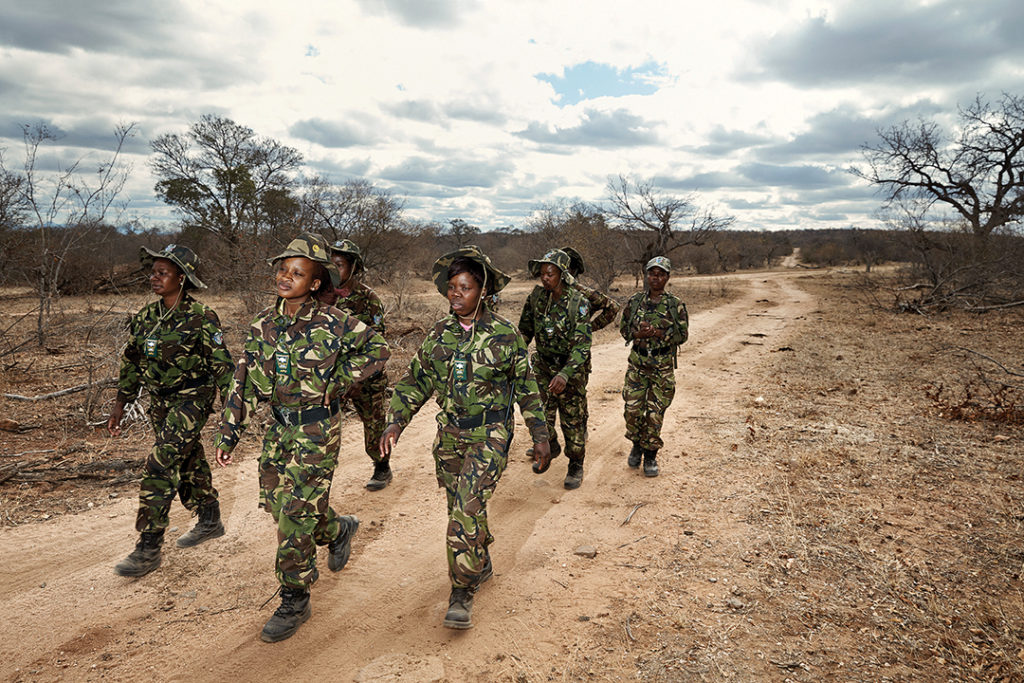ADF STAFF
The Balule Nature Reserve is a protected area in Limpopo Province, South Africa, and is part of the Greater Kruger National Park. The reserve has a group of guardian angels who are like no other — the Black Mambas.
The Mambas, named after a fast-moving, venomous snake, roam the reserve looking for poachers. The all-female team of 36 rangers was founded in 2013. The group, formally known as the Black Mamba Anti-Poaching Unit, acts as an environmental monitor. Members patrol the entire 400 square kilometers of the reserve.
The unarmed Mambas go on foot patrols and observations, conduct vehicle checks at roadblocks, and gather intelligence from their communities. They also are instructors in wildlife conservation.
In the field, they look for tracks, snares, damaged fences and other signs of unwelcome guests to the reserve. As of the end of 2016, the Mambas had identified and destroyed 12 poachers’ camps and reduced snaring and poisoning of wildlife by 76 percent, the digital media company Refinery29 reported.
Because they are unarmed, they are responsible for detection, not enforcement. They work with 23 armed guards in the reserve.
Their main targets are rhino and bush-meat poachers. The poachers use snares and poisons that kill antelopes, wild dogs and cheetahs. Poaching syndicates often stalk lions and giraffes. The Mambas also look for signs of bush-meat “kitchens,” where animals are slaughtered.
“When an incursion is spotted, they call in the armed unit and set up observation posts to assist that unit,” Craig Spencer, head warden of Balule, told Refinery29. “The women’s ability to pick up on subtle differences is often much better than the men.”
The Mambas use VHF and GPS transmitters to track the location of rhinos and map them out prior to shift changes, to ensure that all anti-poaching units are deployed to the most critical areas.
It is not glamorous work. The Mambas work in three-week shifts, living in camp with few amenities. When their three weeks are up, they have 10 days off, then they go back to work. Many are the main breadwinners for their families.
All of the Black Mambas come from local, poor communities. They go through six weeks of classes before finishing their training with field experience.
One major problem the Mambas face is poverty. Arrests in the preserve show that the poachers are not just foreigners, but poor South African villagers.
“The problem really is that there is this perception that has developed in the communities outside the park,” Spencer told The Guardian. “They see a uniformed official and think we are the sheriff of Nottingham; they see the poachers as Robin Hood.
“We are not going to police the problem away,” he said. “This war will never be won with bullets.”

